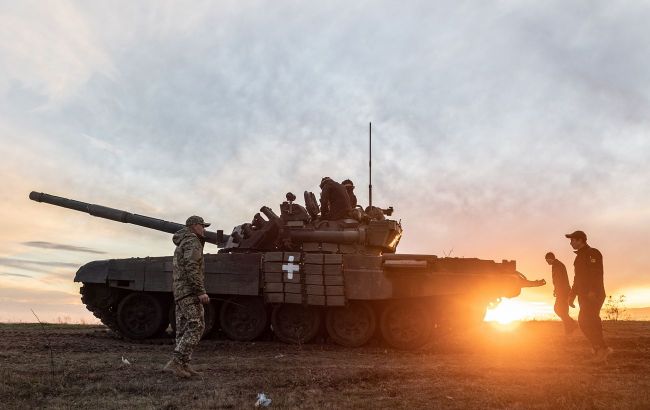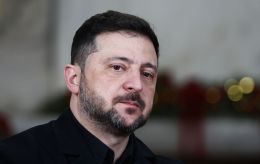Autumn at front: Russians stuck in Pokrovsk, offensive capacity to last 2-3 weeks
 Illustrative photo (Getty Images)
Illustrative photo (Getty Images)
Russia continues to launch heavy attacks towards Pokrovsk, attempting to advance. However, both in this direction and in the eastern front overall, the enemy's ability to conduct significant offensive operations may be exhausted by the end of the month. Additionally, the weather is likely to reduce the intensity of active combat.
More on what to expect on the frontlines in the RBC-Ukraine article below.
Contents
- Main direction - Pokrovsk: Russian actions
- How much longer Russian forces can advance
- How autumn will impact frontline situation
Main direction - Pokrovsk: Russian actions
The most active section of the eastern front remains Pokrovsk. However, according to Commander Oleksandr Syrskyi, the Ukrainian Armed Forces (UAF) have managed to halt the advance of Russian troops.
"The enemy continues to press forward (In Pokrovsk - ed.). We’re seeing these massive attacks continue, but we have engaged reserves, and in doing so, we’ve at least slowed the enemy down. I think we’ll stop them," said military expert, retired UAF Major Oleksii Hetman in a comment to RBC-Ukraine.
He explained that previously, it made no sense to involve reserves. They are not deployed at the start of an enemy operation or in the middle, but rather when it approaches its final phase.
"So, when it reached a certain point and the enemy was confident that everything was going as planned, we engaged reserves. We’ve seen this in places like the town of New York," Hetman said.
He added that the occupiers are currently searching for weak spots in Ukrainian defenses, particularly in the Vuhledar direction, but across the entire front line as well. Even on the Kupiansk-Lyman front, there are signs of escalation. However, Hetman doubts that the Russians will be able to make any significant advances.
"Much depends on how quickly we can maneuver our reserves to counter the enemy, as they are starting to change tactics. In simpler terms, they’ve hit a wall in Pokrovsk. Realizing that they won’t succeed there, they’re looking for other entry points. I think they’ll keep searching but will eventually stop," the expert said.
How much longer Russian forces can advance
According to Hetman, both Ukrainian and international analyses suggest that Russia’s capacity to conduct large-scale offensive actions may run out by the end of this month (as in the spring-summer campaign). In other words, this Russian offensive may be exhausted in 2-3 weeks.
"No army in the world can sustain continuous offensive operations for extended periods — a year, two, or three. That’s not possible. Offensive actions require meticulous preparation, and once what they’ve planned and prepared runs out, so does the offensive," Hetman said.
He speculated that there would likely be a period of positional warfare, or the occupiers may have to switch to defense.
"They understand this perfectly, which is why they are building fortifications behind their offensive lines, knowing that a counterattack is coming," Hetman explained.
How autumn will impact frontline situation
The expert also said that autumn weather will influence the situation on the Ukrainian front. While rain and mud won't completely halt the fighting, they are likely to stop any significant ground maneuvers.
"We're dealing with two interconnected factors here. First, the exhaustion of the aggressor's capabilities, as no army can attack indefinitely. Second, the impact of the weather. Rain and mud will make movement much more difficult in the field."
"Try to drive anything or even walk across dug-up terrain. You’ll quickly realize that the enemy won’t be able to conduct active operations. After the rains, even tracked vehicles won’t be able to pass, let alone wheeled ones," Hetman said.
According to a recent interview with the head of Ukraine’s military intelligence, Kyrylo Budanov, the Russian army has nearly halted active offensives on most parts of the front as of early September, except in the main direction of attack. He mentioned that the Russians are now desperate to achieve their objectives and are throwing everything they have into it.
Budanov also highlighted that historically, Russian forces don’t perform well in winter, adding that the typical challenges of war are compounded by the difficulties of dealing with nature.
For more details on the situation on the front, read RBC-Ukraine's article, "Crisis averted? Pokrovsk battle and reality of Russia's slowed offensive."

